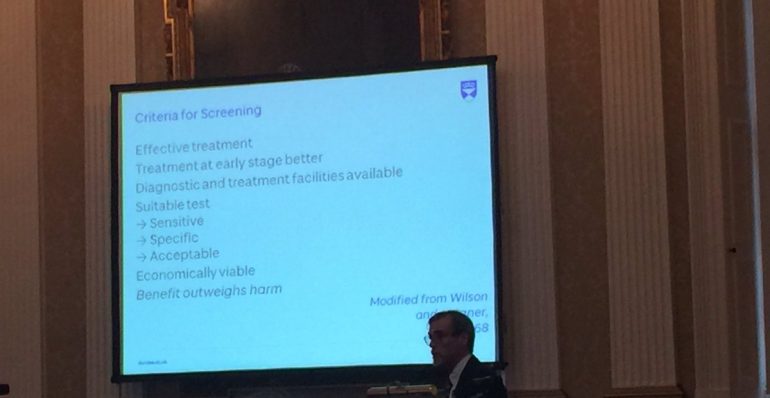
To screen or not to screen with PSA alone?

26 Apr 18 |
By Prof Bob Steele, Co-director SCPN
The recently published CAP study has a stark message – screening for prostate cancer using a single PSA test doesn’t work – it has no effect on mortality from the disease. This reinforces what we already know from previous trials. True, there is one European trial of repeated PSA testing that has shown a reduction in prostate cancer deaths, but at the cost of having to treat 28 men to prevent one death. As the treatment for prostate cancer causes significant morbidity in the form of urinary and sexual dysfunction, the UK National Screening Committee along with all other competent international organisations, do not recommend PSA screening for prostate cancer.
The problem is that, although PSA testing detects cancer, most cases do not progress and are therefore not destined to cause death. Indeed, aggressive prostate cancer often presents in the face of a normal PSA. To compound the problem, symptoms are a very poor indicator of cancer – most men with frequency, urgency and poor stream have benign prostatic enlargement. Of course, some will have cancer as well, picked up by well-meaning PSA testing and subsequent biopsy, and these men will go on to have radical treatment despite the fact that few will benefit.
So what can we do? The message cannot be “don’t screen”, it must be “don’t offer screening with PSA alone”. Given that, in the absence of PSA testing, most aggressive cancer presents with metastatic disease, we need something else that can pick up early significant disease without exposing many men to unnecessary morbidity. Where this will come from is not yet clear, but there is promising ongoing work looking at the value of different levels of PSA, specific age ranges and combining PSA testing with advanced MRI scanning.